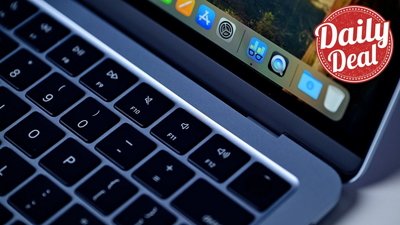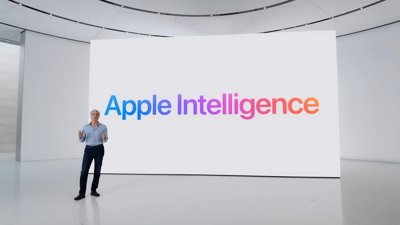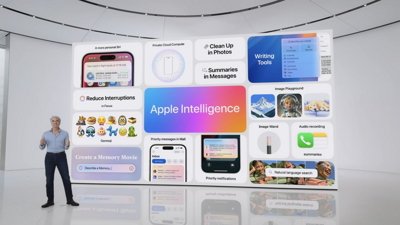Verizon Wireless passed on the chance to be the exclusive distributor of the iPhone almost two years ago, balking at Apple's rich financial terms and other demands, according to a published report.
Among them, Apple reportedly wanted a percentage of the monthly cellphone fees, a say over how and where iPhones could be sold, and control of the relationship with iPhone customers.
"We said no. We have nothing bad to say about the Apple iPhone," Gerace told the paper. "We just couldn't reach a deal that was mutually beneficial."
A mandate by Apple chief executive Steve Jobs that he have 'hard control' over the iPhone distribution may have meant leaving out Wal-Mart, Best Buy and other Verizon distributors. "That would have put our own distribution partners at a disadvantage" to Apple and Verizon stores, Gerace said.
Yet another point of contention was customer care, according to the USA Today, which said Apple wanted sole discretion over whether to replace or repair faulty phones.
"They would have been stepping in between us and our customers to the point where we would have almost had to take a back seat … on hardware and service support," Gerace added.
While Cingular, the carrier which ultimately inked the iPhone deal, won't discuss the financial terms or say how long its exclusivity lasts, the USA Today cited two people with direct knowledge of the deal as saying "it's a five-year contract."
The exclusive is USA-only, leaving Apple free to market its iPhone globally, the paper said.
 AppleInsider Staff
AppleInsider Staff







 Wesley Hilliard
Wesley Hilliard
 William Gallagher
William Gallagher

 Malcolm Owen
Malcolm Owen
 Christine McKee
Christine McKee

 Amber Neely
Amber Neely





-m.jpg)




72 Comments
"They would have been stepping in between us and our customers to the point where we would have almost had to take a back seat ? on hardware and service support," Gerace added.
It has been really interesting to read about the upcoming iPhone and how it is changing the whole industry in the United States. I live in Finland, and I have to say that you have the whole thing screwed up over there.
Phone manufacturers are phone manufacturers and they should be responsible for the phones, which includes the installed software, repairing the devices and so on. Its their hardware and they know what to do with it. Also, phone manufacturers should be the ones selling the phones.
The operator is a network operator and should take care of the network. Period. They should sell network contracts, not phones. (Well, I guess they can do the latter as well, but you probably get my point.)
As all the other phone companies haven't had the guts to say it out loud, it is definitely a good thing that Apple is now entering the business and you will finally gets things at least a bit sorted out.
Wow. I just assumed the Cingular deal was one or two years. Five?
That sounds to me like a bad deal for Apple, since it will be (theoretically) foreclosed from about three-fourths of the mobile subscribers in the United States. Anyone can change carriers, I suppose, but I don't see the iPhone getting the kind of penetration in the U.S. market after five years that it would get all the carriers were selling it after two.
Wow. I just assumed the Cingular deal was one or two years. Five?
That sounds to me like a bad deal for Apple, since it will be (theoretically) foreclosed from about three-fourths of the mobile subscribers in the United States. Anyone can change carriers, I suppose, but I don't see the iPhone getting the kind of penetration in the U.S. market after five years that it would get all the carriers were selling it after two.
I thought the Cingular deal WAS a two-year deal. Also, if Apple couldn't come to terms with Verizon, then it makes you wonder if there ever will be a CDMA version of the phone. All lot of people griped because Apple went with Cingular, but hey ... at least they tried. We'll see how good or bad Verizon's decision was over the next couple of years.
This is what I was saying along, no way you will see a CDMA iphone since Verizon would never give up control. The people who run Verizon have given up the Ma-Bell mentality. Look at what Verizon has done or tried to do, they are trying to put back what AT&T once was. Control every aspect of telecom, it is the only way they know how to compete.
Verizon is taking Cell phone where land lines were 30 yrs ago, where the phone company decided what services you can have, when you can have them and what your phone looked like, and you will rent the phone since they own the phone. I remember when Verizon (Or Bell Atlantic) would tell people if they did not uses the rented rotorary phone they would not guarrantee the service.
I hope to this does in fact change how cell phone business works in the future, think about companies like Motorola and others would begin developing phones that people want not what Verizon want you to have.
As I keep thing about what Apple's long-term strategy is I can't help but feel that the deal with Cingular is really just buying Apple time until it can roll out the service it really wants.
Remember during the keynote Steve said Apple and Google aren't going to merge but each is going to do what they do best in a very tight relationship. In five years Google could have a nationwide WiMax network and Apple could have a compatible iPhone. The real revolution would be that unlike traditional telcos Apple and Google would most likely charge a flat fee for data transmission, irrespective of if it is voice or something else.
Can't wait for 2012!